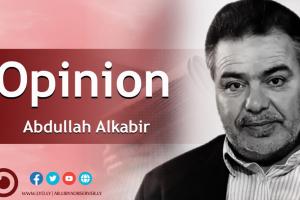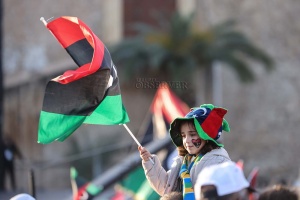By Abdullah Alkabir, political writer and commentator
Boundaries of Success and Failure for Stephanie Koury

The movements of Stephanie Koury, Head of the UN mission to Libya (UNSMIL), and her meetings with diverse political figures and ambassadors are not merely for listening to form a holistic understanding of the crisis and devising a roadmap that reinvigorates the political process, to address the deadlock, and pave the way for a political accord leading to elections. It is most likely that such meetings are for the purpose of putting the final touches to an initiative that is set to be unveiled during her inaugural briefing to the UN Security Council. The new initiative is not expected to be identical to her predecessor Abdoulaye Bathily’s.
Even if Koury makes use of the US diplomatic arsenal to put pressure on the parties and their supporters, and indeed make the parties that did not respond to Bathily before, do respond now and meet at the quintipartite roundtable, it will not achieve any progress. The parties will be entrenched in their positions, power and influence, nothing will force them to give in and then indeed give up the power they wielded. The US and European intervention will be to no avail because some regional and international positions will be contrary to that of the US.
Koury most likely will follow in the footsteps of her fellow US diplomat, Stephanie Williams, by initiating an inclusive dialogue spanning a broad political and social spectrum to navigate the impasse. This approach could be the best to break the monopoly of the regionally and internationally backed House of Representatives (HoR) and the High Council of State (HCS), for the presence of other parties seeking access to power will overshadow the roles of HoR and HCS, and possibly making strides towards elections.
Another avenue for Koury is to empower the High National Election Commission (HNEC) by proposing an alternative initiative that reaffirms the populace’s role in the political transition. This could involve a referendum on the draft constitution or a comprehensive plebiscite on all proposed options, including the draft constitution, legislative elections or elections based on the 6+6 committee’s election laws.
Should Koury align with the incumbent powers’ aspiration to establish a new government under the guise of unifying the executive authority for election facilitation, yet, the HoR and HCS disagreement remains over the final constitutional foundation and definitive timeline for elections and a commitment to adhere to the timelines and indeed to election results. In such case, there will be no elections and the cycle of inaction is likely to persist, with obstructionists maintaining their grip on power.
Regardless of the path chosen, Koury faces obstacles and challenges due to the plethora of actors, their clashing interests, and their capacity to disrupt and exert influence, coupled with the lack of a robust popular movement, all these issues render her mission daunting. Consequently, Koury’s task will not be easy, and the probability of encountering setbacks or achieving limited success far outweighs the prospect of complete success.
Disclaimer: The views and opinions expressed in this article are those of the writer, and do not necessarily reflect those of the Libya Observer



